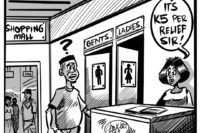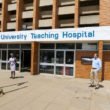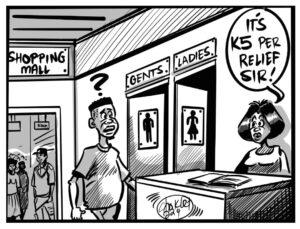The Civil Society for Poverty Reduction (CSPR) says while it supports government’s move to implement the National Health Insurance Scheme, so many things about it are unclear and this is making people reject it.
In an interview, CSPR programmes coordinator Juliet Ilunga urged the Ministry of Health to embark on an information dissemination exercise to educate the masses on how this law was going to work.
“The idea itself is not so bad because it is going to address the issue of financing in the health sector. You may be aware that government has always been under-spending in the health sector. We have been averaging to about nine per cent of the total budget which falls short of the Abuja protocol where African Governments have agreed to spend not less than 15 per cent of their total budgets to their health sectors, and we haven’t been meeting that. So this one addressed the issue of primary support to the health sector because the income will be more predictable now,” Ilunga said.
“There is still public outcry from the citizens and for us as CSPR who represent the vulnerable. Now that it is law and it has been announced, we feel there is need for the Ministry of Health to speed up the process of disseminating information about how this law will be implemented and how it’s going to affect the lives of the people and also the contributors. There are quite a number of issues that still haven’t been clarified. I think people need a lot of information. Information needs to go out there to the people who will be benefiting and also those who will be contributing because as long as people really do not understand how this is going to happen, people are going to have a lot of reservations.”
Ilunga, however, expressed concern that those working in the formal sector would be contributing more than those in the informal sector because of different incomes.
“But also the other issue is that the wealthier will contribute more. If I get K50, 000 and my one per cent will be more than for the one who gets K5,000 but according to that act, the services will be the same. And what we are concerned about is that these funds are mainly going to come from employees and employers. We know that Zambia already has many taxes and so it is like we are going to overburden already burdened employees with so many taxes,” Ilunga said.
“And despite plans to make the informal sector to also contribute, but we are saying can the government also come up with clear strategies on how they are going to make sure that the informal sector contributes because I think as a country we have been finding it very difficult to tax the informal sector and yet there is a lot of money in the informal sector even more than what is in the formal sector. We haven’t been told about the clear strategies on how they are going to ensure that the informal sector benefits because they are going to be beneficiaries. The few of us who are in the formal sector will be contributing for those who are making even more than us.”
Meanwhile, Ilunga asked government to give an assurance that the contributions deducted would be remitted towards the health scheme.
“But also for the employers’ side, this seems to be an added cost for them because some employers already have a scheme with health institutions. And those issues have not been clarified with the employers. So there are a lot of issues that have not been clarified and people have the right to clarity of these issues because if not clarified, there is going to be public rage even when government means well. And what guarantee is there that the funds will be remitted to this authority? because they are saying that when they deduct money from the employee, they are creating an authority which is like NAPSA. But what guarantee is there because there has been instances where people have retired and they want to get their NAPSA dues and NAPSA tells them ‘yes your funds were being deducted but your employer was not remitting,” said Ilunga.
“And the issues of human resource, for example, if I am contributing and I am transferred to a place like Kalabo and I fall sick and there are no doctors. We know that government has a programme to employ more health staff, teachers so on and so forth. As things stand now, there are places where human resource is not adequate.”












